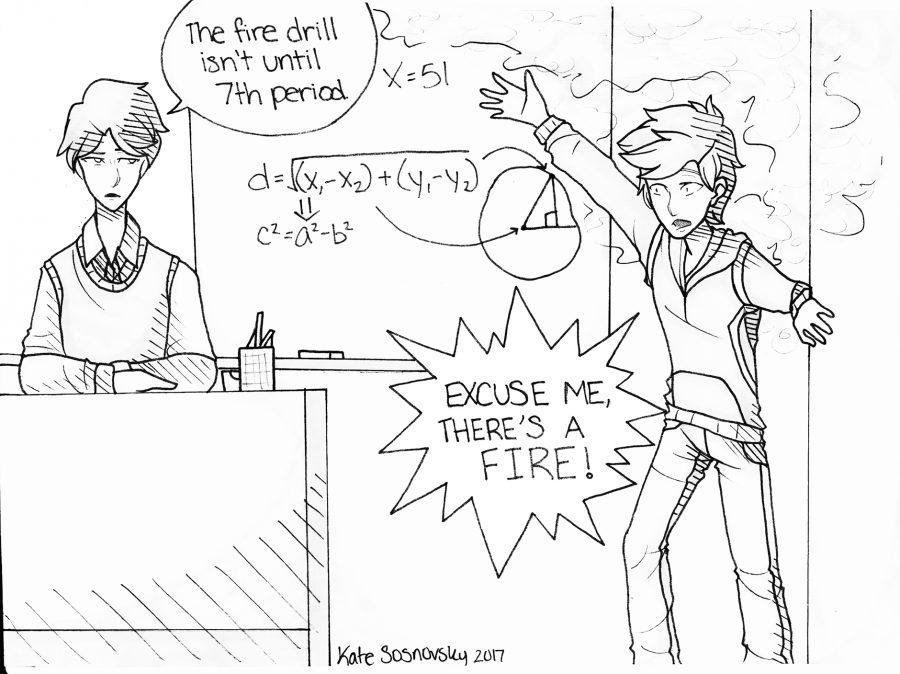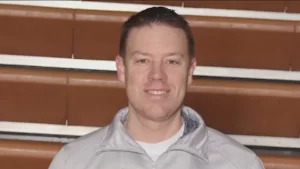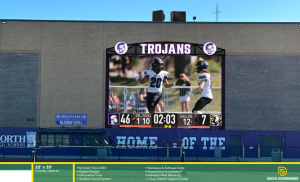Staff Editorial: Prior knowledge of fire drills defeats purpose
February 16, 2017
Students know what it’s like to experience a fire drill: the leisurely evacuation of the classroom, the unhurried shuffling of students’ feet as they wander towards the outdoors. While the intentions of these drills are good, the execution is not preparing students, or even faculty, for a real emergency.
Students usually know what day and class period a fire drill is before it actually happens. Prior warning prevents students from imitating a real emergency.
According to the Illinois School Safety Drill Act, “during each academic year, schools must conduct a minimum of three evacuation drills to address and prepare students and school personnel for fire incidents.” This law requires public schools to make sure one out of the three annual fire drills are unannounced to the entire school prior to the drill actually happening.
While some say informing students when fire drills take place gives students time to figure out where to exit the building, the fact is, students already know where the exits in the school are located. In order to effectively prepare students, fire drills should actually be a surprise to students, ensuring we be able to locate the nearest exit in a limited time.
Because students are used to practicing fire drills, their instinct will be to frantically rush out of the school when encountering an emergency putting others at risk. The fear students feel in this scenario is caused by the fact that in previous fire drills, students were aware when the drill was occurring and that it was not a real emergency. These practice evacuations are a waste of time and lose focus of what the purpose of the drill is.
The National Fire Protection Association estimated that from 2009 to 2013, U.S. fire departments responded to an estimated annual average of 5,100 structural fires on educational properties. According to a report done by the U.S. Fire Administration, a majority of school fires from 2009 to 2011 occurred in middle, junior, and high schools.
If a fire is going to happen, it is in the school’s best interest to prepare students, ensuring that the students aren’t aware of when fire drills will take place.
While doing this may be difficult, preventing teachers from informing students of drills will ensure that students practice for an emergency by treating drills as though an actual fire is present.

























